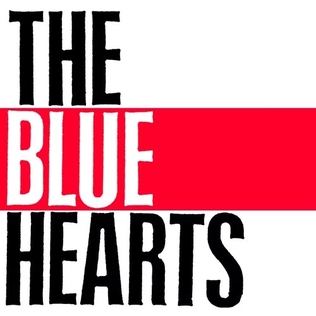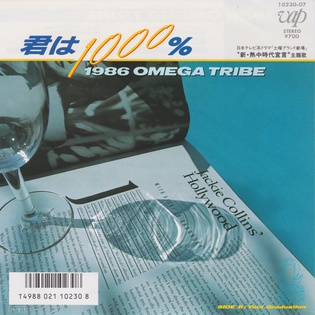Yasutaka Tsutsui is a Japanese novelist, science fiction author, and actor. His Yumenokizaka bunkiten won the Tanizaki Prize in 1987. He has also won the 1981 Izumi Kyoka award, the 1989 Kawabata Yasunari award, and the 1992 Nihon SF Taisho Award.

Special Rescue Police Winspector is a Japanese tokusatsu TV series, part of the Metal Hero Series franchise and the first piece of the Rescue Police Series trilogy. The series follows the adventures and missions of a special "Rescue Police" team known as Special Police Winspector, as they stop crimes and respond to dangerous events where regular police force is not sufficient. The team is made up of one human and two robotic assistants.

Kyō Kara Ore Wa!! is a Japanese manga series written and illustrated by Hiroyuki Nishimori. The manga was initially published in Shogakukan's shōnen manga magazine Shōnen Sunday Zōkan, running monthly from September 1988 to August 1990. The series was then transferred to Weekly Shōnen Sunday and serialized from September 1990 to November 1997. Its chapters were collected in 38 tankōbon volumes. A four-chapter manga sequel, titled Kyō Kara Ore wa!!: Yūsha Sagawa to Ano Futari-hen, was serialized in Shōnen Sunday S from November 2018 to February 2019 and collected in a single tankōbon volume.

Stick Out was the sixth studio album released by Japanese rock band The Blue Hearts. It was also the second consecutive album by the band to reach #1 on the Oricon charts.
"1000 no Violin" is a song by The Blue Hearts, released as the band's fifteenth single. It reached #47 on the Oricon charts in 1993. It was part of the band's sixth album, Stick Out. The music and lyrics were written by Masatoshi Mashima.

Singles 1990–1993 is the most recent compilation album released by the Japanese band The Blue Hearts. It is a two disc set that contains many of the singles and their B-side tracks that were released between 1990 and 1993. It also includes live versions of some of the singles, as well as previously unreleased songs.

Meet the Blue Hearts was the first compilation album released by the Japanese band The Blue Hearts. It includes many of their hits from their time with the Meldac Records label and live records from their tour of America.

The Blue Hearts Box was a box set of three early albums released by the Japanese band The Blue Hearts in 1999. It contains the three Blue Hearts' albums that were released by Meldac Records: The Blue Hearts, Young and Pretty and Train-Train. The release included a 100-page booklet documenting their early albums and only 50,000 of the boxed sets were produced.

Live All Sold Out was the first live album released by the Japanese band The Blue Hearts. It contains 20 of their hits and was released by their label, East West Japan.

Yaon Live on '94 6.18/19 was the second live album released by the Japanese band The Blue Hearts. It contains 17 of their hits and was released by their label, East West Japan.

Blue Hearts ga Kikoenai - History of the Blue Hearts was a compilation video album released by the Japanese band The Blue Hearts. The video served to record the history of the band, from its formation in 1985 to its breakup in 1995.

The Blue Hearts no Dekoboko Chindōchū (ザ・ブルーハーツの凸凹珍道中) was a compilation video album released by the Japanese band The Blue Hearts. The video was a documentary to the band's final tour of Japan in 1994 and includes recordings from 15 of the 30 venues.

B'z The Best "Ultra Pleasure" is a compilation double-album by the Japanese hard rock duo B'z. It was released on June 18, 2008, and it is part of their 20th anniversary celebration. It peaked at #1 at Oricon charts and Billboard Japan Top Albums.

Koreyoshi Kurahara was a Japanese screenwriter and director. He is perhaps best known for directing Antarctica (1983), which won several awards and was entered into the 34th Berlin International Film Festival. He also co-directed Hiroshima (1995) with Roger Spottiswoode, which was nominated for the Primetime Emmy Award for Outstanding Miniseries.

B'z Live-Gym Hidden Pleasure 〜Typhoon No.20〜 is the eighteenth live DVD released by Japanese rock duo B'z, on December 10, 2008. Following the release of two compilations to celebrate the band 20 years of career, this DVD is also a compilation featuring live footage of several different "Live-Gyms" by them.

Bakudan Johnny (爆弾ジョニー) is a Japanese rock band formed in Hokkaido in 2010. The band consists of five members: Ryome, Kyosuke, Romantic Yasuda, Kobori Fire and Taichi Thunder.

Sono 'Okodawari', Ore ni mo Kure yo! is a Japanese comedy manga written and illustrated by Tōru Seino. It was published in Kodansha's Monthly Morning Two from November 2014 to October 2015. and later in Morning from December 2015 to April 2018, with its chapters collected in five wide-ban volumes.

"Kimi wa 1000%" is a song recorded by the Japanese city pop and soft rock band, 1986 Omega Tribe, released on May 1, 1986, by VAP. It is the song most commonly identified with Omega Tribe when Carlos Toshiki was the lead vocalist. The song peaked at #6 on the Oricon charts.
Roland is a Japanese host, fashion model, TV personality, and entrepreneur. He is the representative director of Roland Group HD, Inc. As the Kabukicho host club sales record holder, he has been nicknamed "King of the Hosts". His income amounts to 42 million yen per month; his cosmetic surgery costs have incurred more than 10 million yen, with touch-up procedures costing 200 thousand yen per month.
















